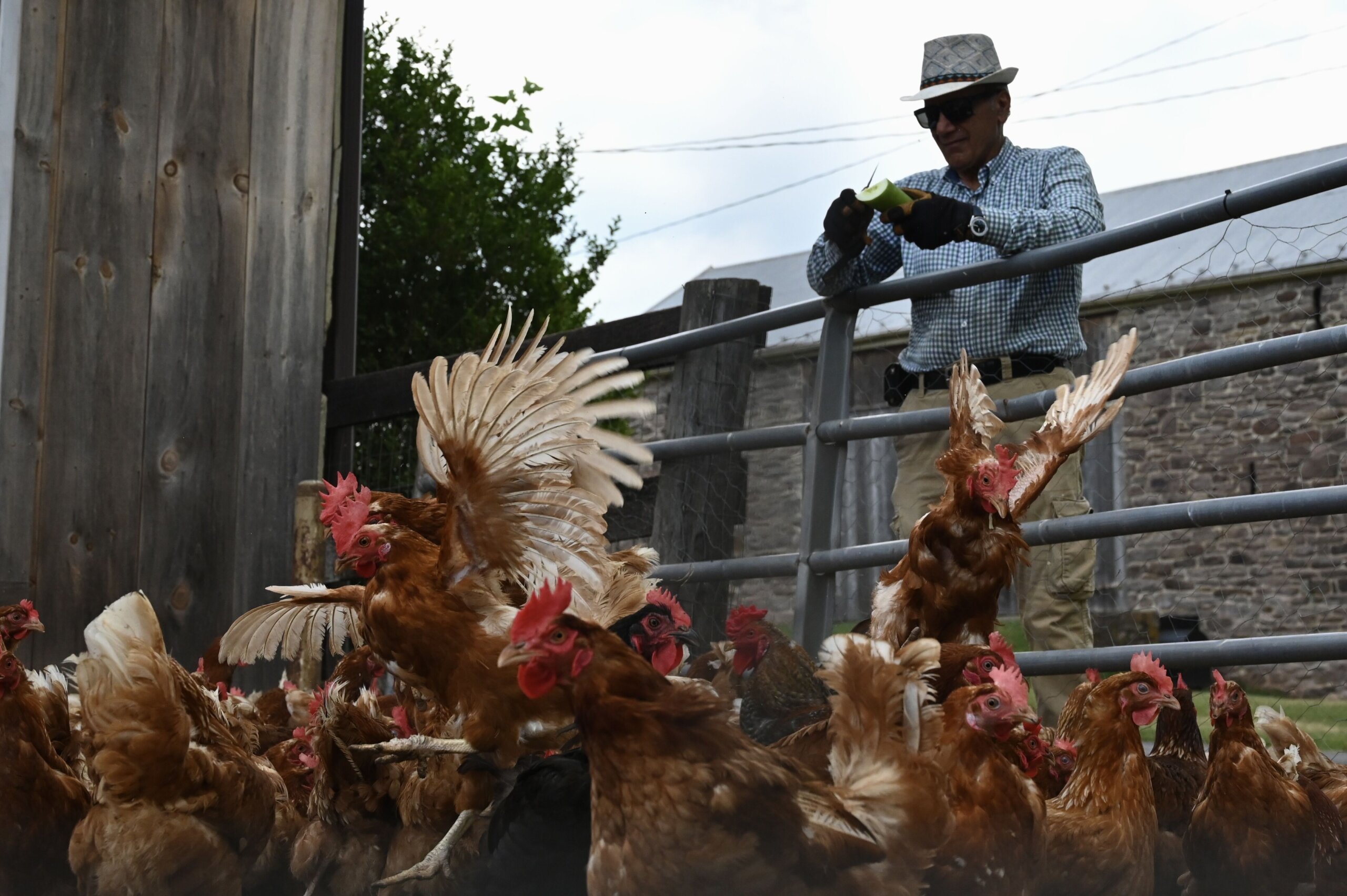Now Reading: First bird flu case reported at Maryland poultry facility
-
01
First bird flu case reported at Maryland poultry facility
First bird flu case reported at Maryland poultry facility

A case of the avian influenza, commonly known as bird flu, was confirmed in Caroline County, and it marks the first case of the H5N1 virus found at one of Maryland’s commercial poultry facilities since 2023.
A case of the avian influenza, commonly known as bird flu, was confirmed in Caroline County, and it marks the first case of the H5N1 virus found at one of Maryland’s commercial poultry facilities since 2023.
It’s also the third case reported in the Delmarva Peninsula region in the last 30 days, after two confirmed cases were found in Kent County, Delaware, Maryland’s Department of Agriculture said in a news release.
Maryland state and local surveillance of the bird flu has been increasing after preliminary testing of a commercial poultry flock in Delaware produced a “presumptive positive” result. Just a few days ago, the Centers for Disease Control and Prevention reported the first U.S. bird flu death — a person in Louisiana.
Birds on the Maryland property have been quarantined and crated to prevent the spread of the disease.
Dr. Jennifer Trout, the State Veterinarian who oversees animal health, said after the birds have been carefully quarantined, they’ll “disinfect the premises, and then test to make sure that facility is free of the influenza.”
The state agriculture agency’s secretary, Kevin Atticks, said the virus does not affect poultry meat or egg products and that the agency is working with partner organizations to address the ongoing situation.
“Say you had a flock that had avian influenza, those birds or their eggs are not going to enter the food chain. It’s all about the checks and balances,” Trout added.
Bird flu is a highly contagious, airborne, respiratory virus that spreads easily among farm animals, such as chickens and cows. It often spreads through contact with infected poultry on equipment and clothing, so those who work directly with poultry or on dairy farms are more at risk of contracting the disease.
Trout said the state will soon start “bulk tank testing of raw milk so that we can make sure that we don’t have any avian influenza in our state’s dairy herd, and help to make sure that none of that’s transferring over to our state’s poultry flock.”
Symptoms of bird flu in humans include eye redness, mild fever and cold-like symptoms, body aches and fatigue, according to the CDC. If you come in contact with live poultry, it’s recommended to wash your hands, clean off equipment routinely, wear disposable foot coverings and change clothing before exiting a facility.
For more information on avian influenza, visit the Department of Agriculture’s website.
WTOP’s Kate Ryan contributed to this report.
Get breaking news and daily headlines delivered to your email inbox by signing up here.
© 2025 WTOP. All Rights Reserved. This website is not intended for users located within the European Economic Area.



















